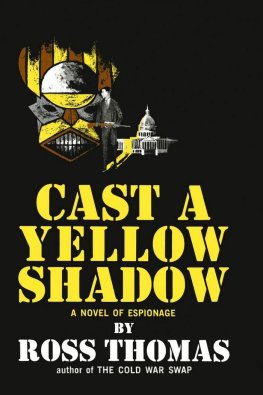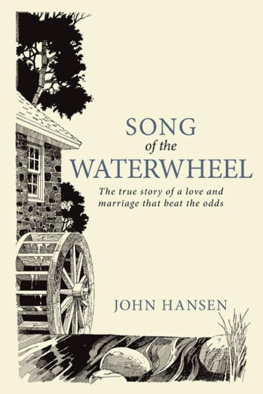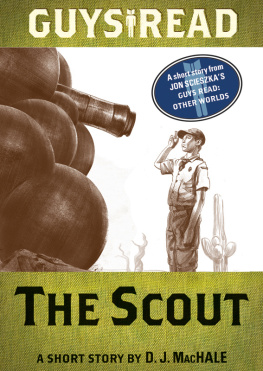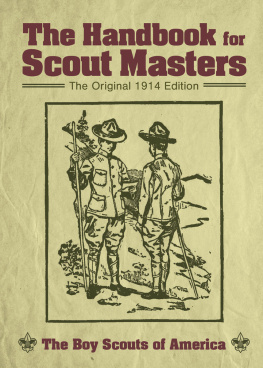This edition is published by PICKLE PARTNERS PUBLISHINGwww.picklepartnerspublishing.com
To join our mailing list for new titles or for issues with our books picklepublishing@gmail.com
Or on Facebook
Text originally published in 1914 under the same title.
Pickle Partners Publishing 2014, all rights reserved. No part of this publication may be reproduced, stored in a retrieval system or transmitted by any means, electrical, mechanical or otherwise without the written permission of the copyright holder.
Publishers Note
Although in most cases we have retained the Authors original spelling and grammar to authentically reproduce the work of the Author and the original intent of such material, some additional notes and clarifications have been added for the modern readers benefit.
We have also made every effort to include all maps and illustrations of the original edition the limitations of formatting do not allow of including larger maps, we will upload as many of these maps as possible.
THREE YEARS WITH QUANTRELL
A TRUE STORY
TOLD BY HIS SCOUT
JOHN McCORKLE
WRITTEN BY O. S. BARTON
INTRODUCTION.
In all wars there have always been, and always will be a class of men designated as guerillas, but it can be said that the Missouri guerillas are more noted than those of any war in any country for ages. Their deeds of daring, their miraculous escapes, and the physical sufferings that they endured are almost beyond belief. Following the close of the Civil War, a number of highly-colored and melodramatic books, concerning the acts of the guerillas were published, in the majority of which the desire to be sensational defeated any attempts at truthfulness on the part of the authors. Another class of books, written from an intensely partisan standpoint, has given to the world a very imperfect conception of the motives and of the conduct of the Missouri guerrillas. All of these books were published at a time when men were controlled by feelings of prejudice and passion and a number of the inhabitants of Missouri have, for years, endeavored to find someone who knew the facts and would truthfully relate them as they were.
In the summer of 1865, a tall, gaunt, blue-eyed Confederate soldier landed from a steamboat at the town of Glasgow, Howard County, Missouri. He was dressed in a ragged, faded gray uniform and had all of his possessions about him. In the country above Glasgow he had sonic relatives, connections, both by blood and marriage, of some of the best families in Missouri, and at the home of one of these relatives this young man found employment as a farm laborer and it soon became known that he was John McCorkle, one of Quantrells bravest and most trusted soldiers and one of his leading scouts. For some time the neighbors kept a close watch upon the newcomer and viewed him with something of suspicion, fearing that he might follow the alleged example of some of the other of Quantrells men and become an outlaw, but they soon found him to be a steady, law-abiding citizen. In 1867, he was married to an estimable lady of Howard County, and soon became one of its leading farmers and one of its best and most trusted citizens, and today no man in the county stands higher in the estimation of his neighbors and acquaintances than does John McCorkle. For years a member of the Baptist church, he is known as a true Christian gentleman of strong character, as tender-hearted and sympathetic as a woman, but as stern and fearless as a lion and the word fear has no place in John McCorkles vocabulary. And when the time comes, he will, as he has many times in the past, face Old Death with a smile on his face.
Quite a number of his friends, knowing his history and his record with Quantrell, and knowing that from his lips would come naught but the truth, have been trying to persuade him to write a brief story of his life with Quantrell. He has at last consented and I have agreed to write the account for him. He has told me the facts and I have written them down; every word in the following pages is true: I have attempted to neither add to, or detract from any of these facts, as related by him; there is no fiction in this account but a true story. Mr. McCorkle has more than lived out his alloted time of three-score years and tell, but his memory is still good and while lie may have forgotten a few of the facts after a lapse of half a century, still everything related by him actually occurred. As he would relate his experiences and those of his comrades, I could see that all the sad and awful scenes of these three terrible years were crowding fast upon his memory, and I could not help but notice the changing expression of his eyes, which are of that determined blue, while he was relating these facts to me. At times, while describing some of the battles and some of the outrages committed against the helpless non-combatants of the South, during those four years of civil war in Missouri by unprincipled men who hid their misdeeds under the cloak of a Federal uniform and the Stars and Stripes, I could almost see the fire flash from those eves and at other times. while telling-of the death of some comrade, or the sufferings and hardships of defenceless old men and women of the South, those same eyes would fill with tears and the voice which had so often sent terror to the hearts of Kansas Jayhawkers and militiamen as it gave forth the rebel yell, would sing: into a husky whisper. This story is not published in any spirit of malice or hatred, but in order that the truth may be known, that the world may know that Quantrell and his band were justified. in nearly all of their acts and that they were not altogether bad; that they were driven to desperation by brutal outrages committed against them and their friends, and our only desire is that the world shall know the true facts in the case before it is too late, for we all are forced to realize the sad fact that ere long tale will sound for the last Confederate soldier on earth. All is forgiven, if not forgotten.
O. S. Barton.



















